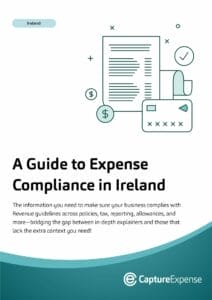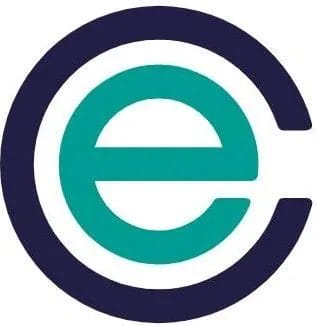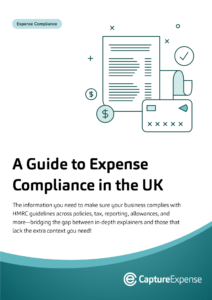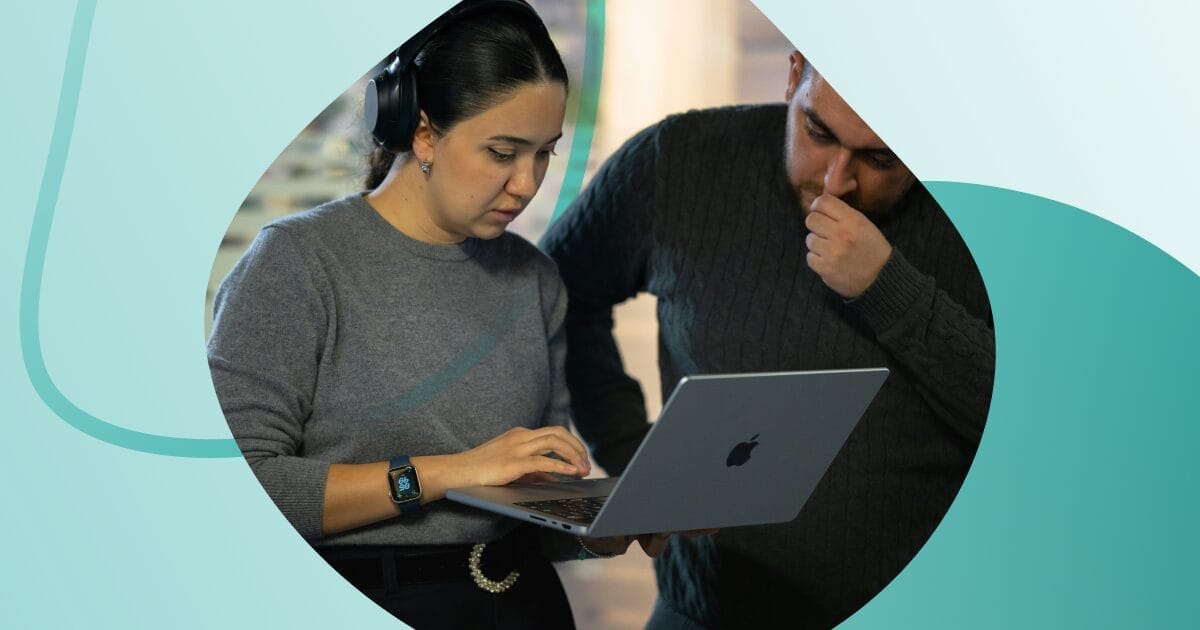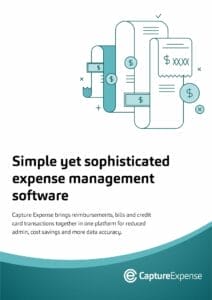Did you know 43% of senior finance leaders are very concerned about HMRC inspections?
That means that nearly half of all CFOs, Finance Directors, and Heads of Finance feel apprehensive or underprepared for an unexpected visit from the taxman.
And maybe that’s partly because expense compliance in the UK is complex, and can be time-consuming. But the trick is having a robust policy in place to make staying compliant just that little bit easier.
Now before you can create your company expense policy, and implement processes for complying with HMRC, you need to know what’s expected of you.
Let’s shine some light on the expense compliance areas to focus on to make sure you keep the taxman at bay.
What do HMRC expect from you?
If you have an HMRC compliance check, they’ll review your entire expense compliance process for non-compliance with HMRC expense regulations.
Their primary focus is to make sure that you have:
• A clear and enforced policy
• Appropriate approval processes
• Comprehensive documentation
• Appropriate checks and controls
• Full compliance with Tax and VAT requirements
• A robust and secure payment process
The VAT rates in the UK
VAT (or Value Added Tax) is a tax added to the price of most goods and services in the UK.
If you’re a business owner, you’ll need to register for VAT if your taxable turnover exceeds £90,000 in a 12-month period.
Once registered, you’ll charge VAT on your sales and reclaim the VAT you’ve paid on your purchases.
Here are the VAT rates for 2025:
| |
% of VAT |
What the rate applies to |
| Standard rate |
20 |
Most goods and services |
| Reduced rate |
5 |
Some goods and services, e.g. children’s car seats and home energy |
| Zero rate |
0 |
Zero-rated goods and services, e.g. most food and children’s clothes |
When you mustn’t charge VAT
There are certain goods and services that are exempt from VAT. This means you won’t charge VAT on these items — even if you’re VAT-registered.
Some examples of VAT-exempt items include:
- Financial services: banking, insurance, investments.
- Healthcare and medical treatments: doctor’s visits, prescriptions.
- Education and training: school fees, university tuition.
- Charity services: charitable donations, fundraising events.
You can also access HMRC’s full list of VAT exempt goods.
Remember, even though you don’t charge VAT on these items, you still need to keep track of them in your business records.
Expense compliance when it comes to vehicle mileage
Did you know that your employees can claim back time spent traveling for work?
That’s right, by following HMRC’s mileage rates, you can empower your employees to claim back vehicle expenses incurred for business purposes.
Here are the mileage allowance rates for 2025:
| Type of vehicle |
10,000 miles |
10,000 + miles |
| Cars and vans |
45p |
25p |
| Motorcycles |
24p |
24p |
| Bikes |
20p |
20p |
What are HMRC’s advisory fuel rates?
HMRC’s advisory fuel rates apply to company-owned cars and serve two main purposes:
- Reimbursing your employees for business travel expenses incurred in a company car.
- Managing reimbursements when your employees use a company car for personal travel and need to repay the business.
Here are the advisory fuel rates for 2025:
Petrol
| Engine size (cc) |
Mean MPG |
Fuel price (per litre) |
Fuel price (per gallon) |
Rate per mile |
Advisory fuel rate |
| Up to 1400 |
51.0 |
138.7 pence |
630.7 pence |
12.4 pence |
12 pence |
| 1401 to 2000 |
42.3 |
138.7 pence |
630.7 pence |
14.9 pence |
15 pence |
| Over 2000 |
27.1 |
138.7 pence |
630.7 pence |
23.3 pence |
23 pence |
Diesel
| Engine size (cc) |
Mean MPG |
Fuel price (per litre) |
Fuel price (per gallon) |
Rate per mile |
Advisory fuel rate |
| Up to 1600 |
56.9 |
146.1 pence |
664.3 pence |
11.7 pence |
12 pence |
| 1601 to 2000 |
49.3 |
146.1 pence |
664.3 pence |
13.5 pence |
13 pence |
| Over 2000 |
38.0 |
146.1 pence |
664.3 pence |
17.5 pence |
17 pence |
LPG (Liquefied Petroleum Gas)
| Engine size (cc) |
Mean MPG |
Fuel price (per litre) |
Fuel price (per gallon) |
Rate per mile |
Advisory fuel rate |
| Up to 1400 |
40.8 |
98.3 pence |
446.9 pence |
10.9 pence |
11 pence |
| 1401 to 2000 |
33.8 |
98.3 pence |
446.9 pence |
13.2 pence |
13 pence |
| Over 2000 |
21.7 |
98.3 pence |
446.9 pence |
20.6 pence |
21 pence |
Electric
| Electrical efficiency — miles per kilowatt-hour |
Domestic electricity cost (per kilowatt-hour) |
Rate per mile |
Advisory electric rate |
| 3.57 |
25.24 pence |
7.06 pence |
7 pence |
How to reclaim VAT on fuel
If you’re VAT-registered, you can often reclaim the VAT you’ve paid on fuel costs.
However, there are a few conditions:
- Business use: the fuel must be used for business purposes. This could be for company vehicles or employee reimbursements for business mileage.
- Accurate records: you’ll need to keep detailed records of your fuel purchases, including receipts and mileage logs.
There are two ways you can reclaim VAT on fuel:
- Reclaim all the VAT paid on fuel purchases and pay the appropriate fuel scale charge for your vehicle.
- Claim VAT only for the fuel used during business trips by maintaining thorough mileage records to demonstrate usage exclusively for business purposes.
Expense compliance around carbon reporting
From July 2025, you’ll be required to provide more detailed information about your sustainability practices and climate related risks.
This means if your business meets certain criteria, such as having a significant turnover (exceeding £500 million) and employee count (at least 500), you’ll be required to report on your carbon emissions.
You’ll need to:
- Track your carbon footprint: monitor your direct emissions (Scope 1) and indirect emissions from purchased energy (Scope 2).
- Assess your supply chain: evaluate the carbon footprint of your suppliers and consider ways to reduce emissions throughout your supply chain (Scope 3).
- Set reduction targets: establish clear targets for reducing your carbon emissions and develop a plan to achieve them.
What you need to know about tax compliance
When it comes to tax compliance, we know the number one question on your mind: are reimbursed expenses taxable in the UK?
The short answer is no. If expenses are wholly, exclusively, and necessarily incurred in the performance of your job, they aren’t taxable.
For example, if you’re a salesperson and your job requires you to travel to meet with clients. Any expenses you incur, such as travel costs, accommodation, and meal expenses, can usually be reimbursed tax-free.
Are there any exceptions?
Yes, if the expenses aren’t classed as “work-related”, or if they’re seen as providing a personal benefit.
Here are a couple of examples:
- Excessive or extravagant expenses: if your expenses are deemed unreasonable or excessive, they may be considered taxable income.
- Personal expenses: reimbursements for personal expenses, such as commuting to and from work, are generally taxable.
We know it can be tricky, but knowing the difference between deductible and non-deductible expenses can significantly impact your financial planning and tax liability.
What you need to know about corporation tax
If you’re setting up a limited company in the UK, you’ll need to register for corporation tax within three months of starting your business.
This tax is applied to your company’s profits, investments, and any gains from selling assets.
Here’s a breakdown of the 2025 rates:
- Small profits rate (companies with profits under £50,000): 19%
- Main rate (companies with profits over £250,000): 25%
What you need to know about National Insurance Contributions
National Insurance Contributions (NICs) are essentially taxes on earnings that help fund state benefits like the NHS and State Pension.
If you’re a business owner in the UK, you’ll need to understand the different types of NICs and how they apply to your business:
Class 1 NICs
- Employee NICs: deducted from your employees’ wages.
- Employer NICs: paid by you, on top of your employees’ wages.
Class 1A NICs
Class 1A NICs are a type of tax that you pay on certain benefits you provide to your employees.
These benefits, often called “Benefits in Kind (BIK)” can include things like:
- Company cars: if you provide your employees with company cars, you’ll need to pay Class 1A NICs on the benefit value of the car.
- Private healthcare: if you offer private health insurance to your employees, you’ll also need to pay Class 1A NICs on the cost of the insurance.
- Accommodation: if you provide accommodation for your employees, such as a company flat or house, you’ll need to pay Class 1A NICs on the benefit value of the accommodation.
Why you need to create an expense policy
A company expense policy is like a roadmap to expense compliance. It outlines what expenses are reimbursable, how much you can claim, and what documentation you need to provide (for your company or HMRC).
By having a clear and concise policy in place, you can make sure that your employees understand the rules and submit accurate expense claims.
To help you get started you can download our free expense policy template.
How to report your expense reimbursements to HMRC
You have a couple of options to choose from when reporting the reimbursement of expenses:
- You can use a P11D form to report your expenses and benefits to HMRC at the end of the tax year.
- You can opt for payrolling, where you include the value of the expenses and benefits in the employee’s pay.
It’s worth noting that starting from April 2026, all BIKs that you provide (except for loans and living accommodation) will have to be reported and taxed through payroll.
Your 6-step guide to HMRC expense compliance
1. Understand the rules
2. Keep detailed records
- Keep all receipts for expenses — no matter how small.
- Maintain a mileage log: if you use your car for business, keep a detailed record of your mileage.
- Document the business purpose: explain why each expense was necessary for your job.
3. Categorise your expenses
- Clearly distinguish between expenses incurred for business purposes and those for personal use.
- Use appropriate expense categories (e.g., travel, accommodation, meals, office supplies).
4. Claim the right amount
- Make sure that your expense claims are in line with HMRC’s rules and regulations.
- Only claim for reasonable and necessary expenses.
5. Submit your claims on time
- Follow your company’s specific procedures for submitting expense claims.
- Don’t delay in submitting your claims to avoid potential issues.
6. Choose an expense management system that fully complies with HMRC
A sophisticated expense management system like Capture Expense will help you automate the process, reduce errors, and comply with HMRC regulations.
You need to Look for a system that can:
- Automatically calculate mileage claims based on HMRC rates
- Generate accurate expense reports
- Integrate with your accounting software
- Provide real-time insights into your spending habits
- Offer robust audit trails for expense compliance purposes
Do you still need help with expense compliance?
Book a personalised demo today and we’ll help you with all your expense compliance needs. There’s not a mileage query we can’t handle, or a tax problem we can’t solve.


